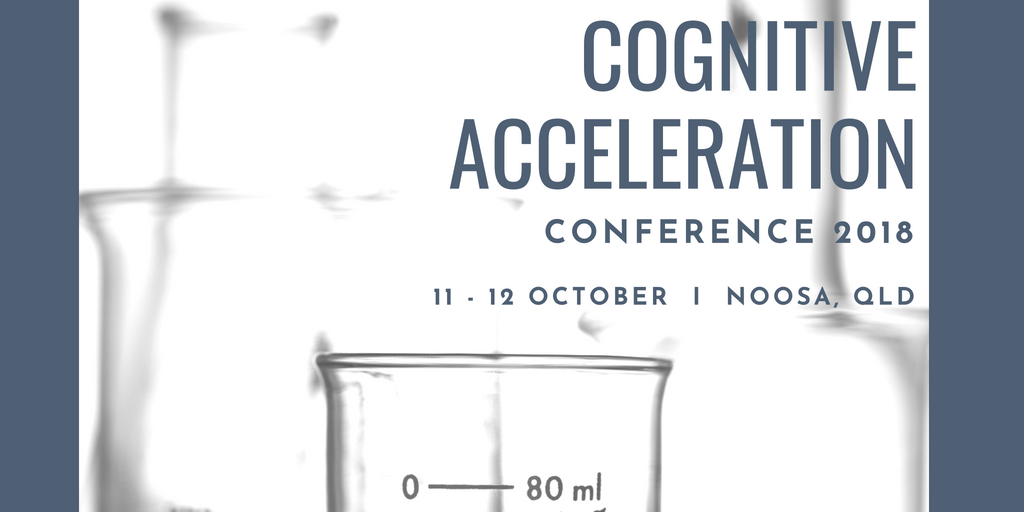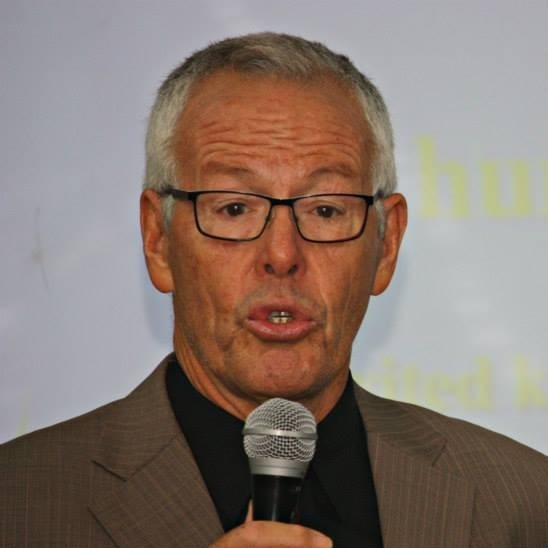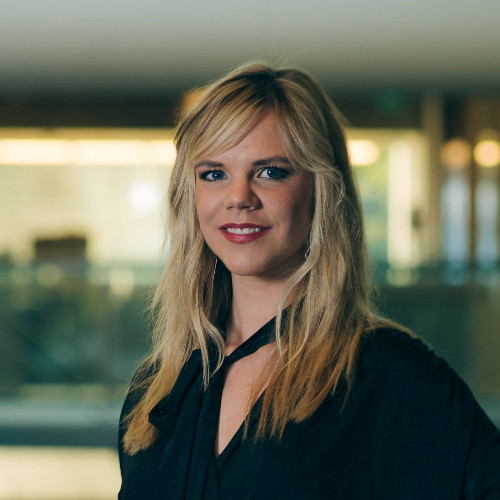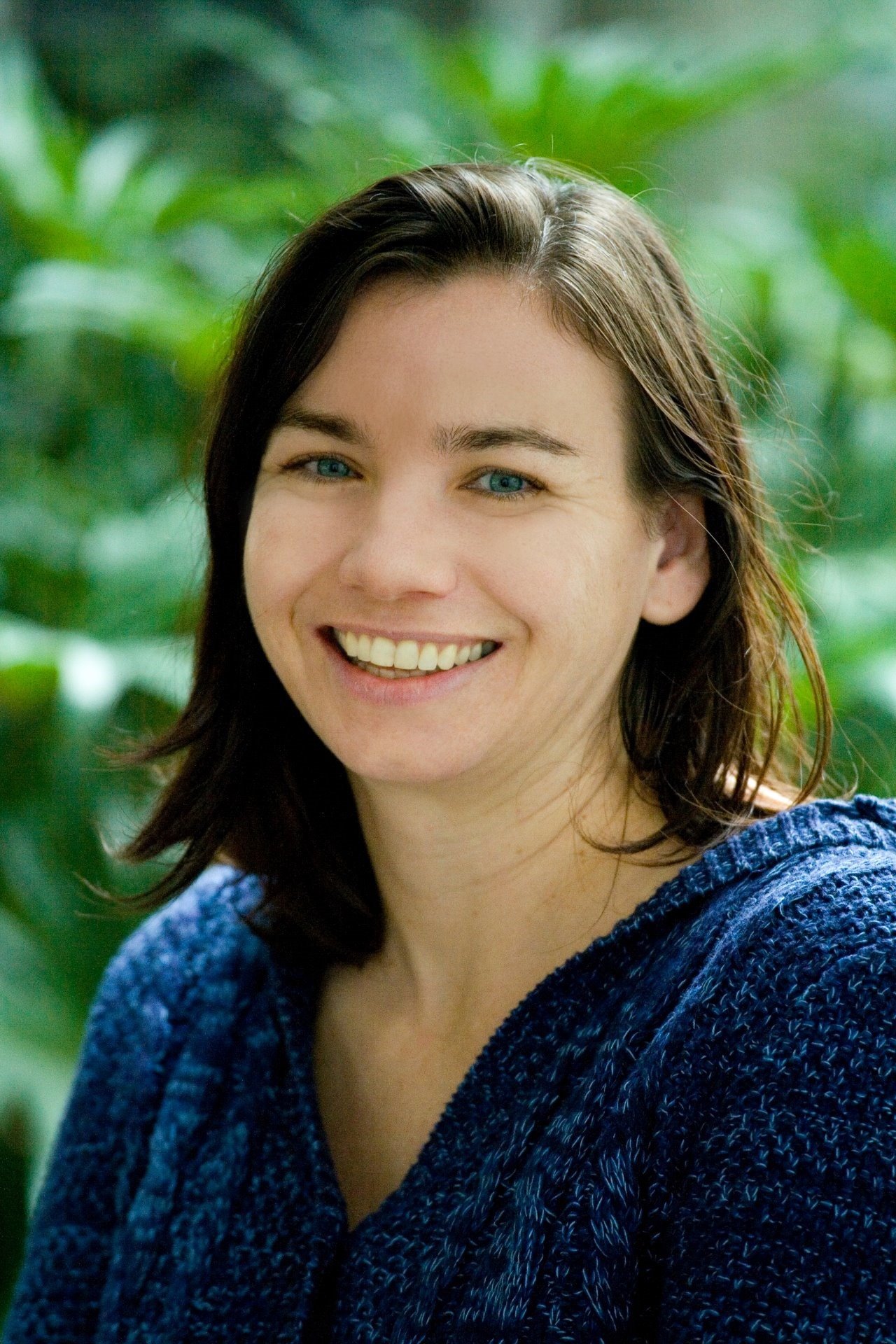COGNITIVE ACCELERATION CONFERENCE 2018
Join us on 11 & 12 October at Peppers Noosa Resort for the Cognitive Acceleration Conference 2018.
The conference in 2018 will be the fourth conference in Queensland, supporting the teaching of thinking in the classroom. Find out about cognitive acceleration programs, the science of learning, metacognition and be inspired by our keynote speakers.

How do we prepare learners for the complex demands of tomorrow's world? Learning independence? Learning intelligence? Learning to think? Over 40 years, cognitive acceleration research has sought to answer these questions and has produced several classroom programs like Cognitive Acceleration through Science Education (CASE, or Thinking Science ), Cognitive Acceleration through Maths Education (CAME, Thinking Maths) and Let's Think! that have successfully improved achievement. The interest in CA programs is steadily increasing in Australia.
Thinking clearly has never been more important, however, the teaching of thinking is often overshadowed by other curriculum demands. In Queensland, the landscape of senior education is about to change; find out how early, evidence-based intervention can give your students the cognitive agility to meet the demands of the new senior syllabi.
If you are interested in Cognitive Acceleration through Science Education (CASE, Thinking Science), Thinking Maths, Piagetian programs or how metacognition can impact the learning in your school and prepare students for ever changing curriculum demands, this conference is a 'must-attend' event.
KEYNOTE SPEAKERS

PROF. TREVOR BOND
Prof. Trevor BOND is at Adjunct Professor in the College of Arts, Society & Education at James Cook University. His research has focussed on formal operational thinking and intellectual development during adolescence since his undergraduate days. Prof Bond spent his first sabbatical with Shayer, Adey and Yates at the CASE Project in King's College, London. He worked directly with CASE project schools, and used data from one of those schools in his own doctoral research. He worked with his doctoral student, Lorna Endler to conduct successful cognitive acceleration projects in Townsville, Australia and Oregon, in the USA. Prof Bond researched at the Archives Jean Piaget in Geneva, and gave the keynote address on formal operational thinking at the memorial festschrift for Piaget's closest collaborateur, Bärbel Inhelder. His more recent research has focussed on methods for measuring intellectual and achievement gains over time.

DR. NATALIE RENS
Dr. Natalie Rens is the Artificial Intelligence Specialist for the Office of the Queensland Chief Entrepreneur, where she works on strategies to advance AI capability in Queensland. She is the organiser of Brisbane.AI, an AI meetup with over 2,000 members.
Recently, Natalie also founded her own company, Spaceport AI, with the goal of developing technologies that will enable sustainable human life in space. Natalie holds a Bachelor in Biomedical Science (honours), Master in Cellular and Molecular Neuroscience, and a PhD in Neuroscience, in which she focused on the use of machine learning and computational models to predict human voluntary decisions. Natalie was also a student committee member of the Science of Learning Research Centre (SLRC).

A/PROF. JOANNE MACDONALD
Assembling strands of DNA, to play tic-tac-toe against a human opponent, made Associate Professor Joanne Macdonald realise that combining Science and Engineering is limited only by our imagination.
Based at the University of the Sunshine Coast, with a joint appointment at Columbia University (USA), A/Prof Macdonald's research focuses on re-engineering molecules beyond nature. Dr. Macdonald prefers to translate research towards real-world problems and is currently building rapid biosensors to help combat deadly diseases, including Hendra and Malaria. She recently co-founded BioCifer Pty. Ltd. to produce her devices.
She is also studying spider silk as an advanced material, the artificial construction of organisms using synthetic biology, and the engineering of biomolecules to inactivate toxic chemicals, such as cocaine and nerve agents. One of her drugs has completed Phase II clinical trials for treating cocaine overdose. Featured in popular science magazines, including Scientific American and New Scientist, and Winner of the 2016 Rose-Anne Kelso award for Women, Dr. Macdonald is an avid science communicator. She teaches undergraduate Molecular Biology and Biotechnology, and particularly loves interactive workshops where she can learn more than she teaches.
IN-DEPTH WORKSHOPS
Be inspired by in-depth workshops on Cognitive Acceleration, The Science of Learning and Metacognition
THINKING SCIENCE (CASE)
New to Thinking Science? These intro workshops will introduce you to the program.
Tim Smith, Mary Oliver, Neil Gordon, Daryl Bathe
THINKING MATHS (CAME)
New to Thinking Maths? These workshops will introduce you to the program.
Tim Smith, Neil Gordon
NEXT LEVEL THINKING SCIENCE (CASE)
Already teaching Thinking Science? These workshops will develop your practice further.
Tim Smith, Neil Gordon
METACOGNITION
Find out how metacognition and self regulation can be so powerful in the classroom.
Aisling Mulvihill, Tim Smith
THE SCIENCE OF LEARNING
What can science of learning research tell us about risk-taking, challenge, difficulty and confusion?
Stephanie McMahon
NEUROMYTHS IN EDUCATION
How persuaded are you about the influence of neuroscience in the classroom?
Tim Smith
ACTION RESEARCH
How do we measure the impact of new teaching strategies? Find out how to plan an action research project.
Tim Smith
REAL LIFE LESSONS
Hear from those who have worked with Thinking Science (CASE) and how they have made the program work.
Damian Larkin, Matthew Flinders
ONLINE LEARNING
How can online learning platforms enhance the teaching of science? Hear from Stile Education.
Jaclyn Rooney
PANEL Q&A
Quiz the experts on Cognitive Acceleration, The Science of Learning, impact measures and how to prepare learners for the new QLD Senior Syllabi!
VENUE: PEPPERS NOOSA RESORT, QLD
GETTING THERE
By air
Brisbane International & Brisbane Domestic terminals are approximately 1hr 45mins from Noosa by car. Cars can be rented from all major car rental agents at Brisbane Airport.
Sunshine Coast Airport is approximately 35 minutes from Noosa by car. Cars can be rented at Sunshine Coast Airport. Direct flights are available from Adelaide, Melbourne and Sydney. International flights from Auckland.
Public Transport
Noosa is serviced by buses and taxis; please refer to Noosa public transport information here.
By road
Noosa is at the northern end of the Sunshine Coast and is close to the M1 (Bruce Highway). Click here for the conference venue map.
CONFERENCE SIGN UP
Sign up using the webform below. Alternatively, download an editable / printable form (included in the brochure)
